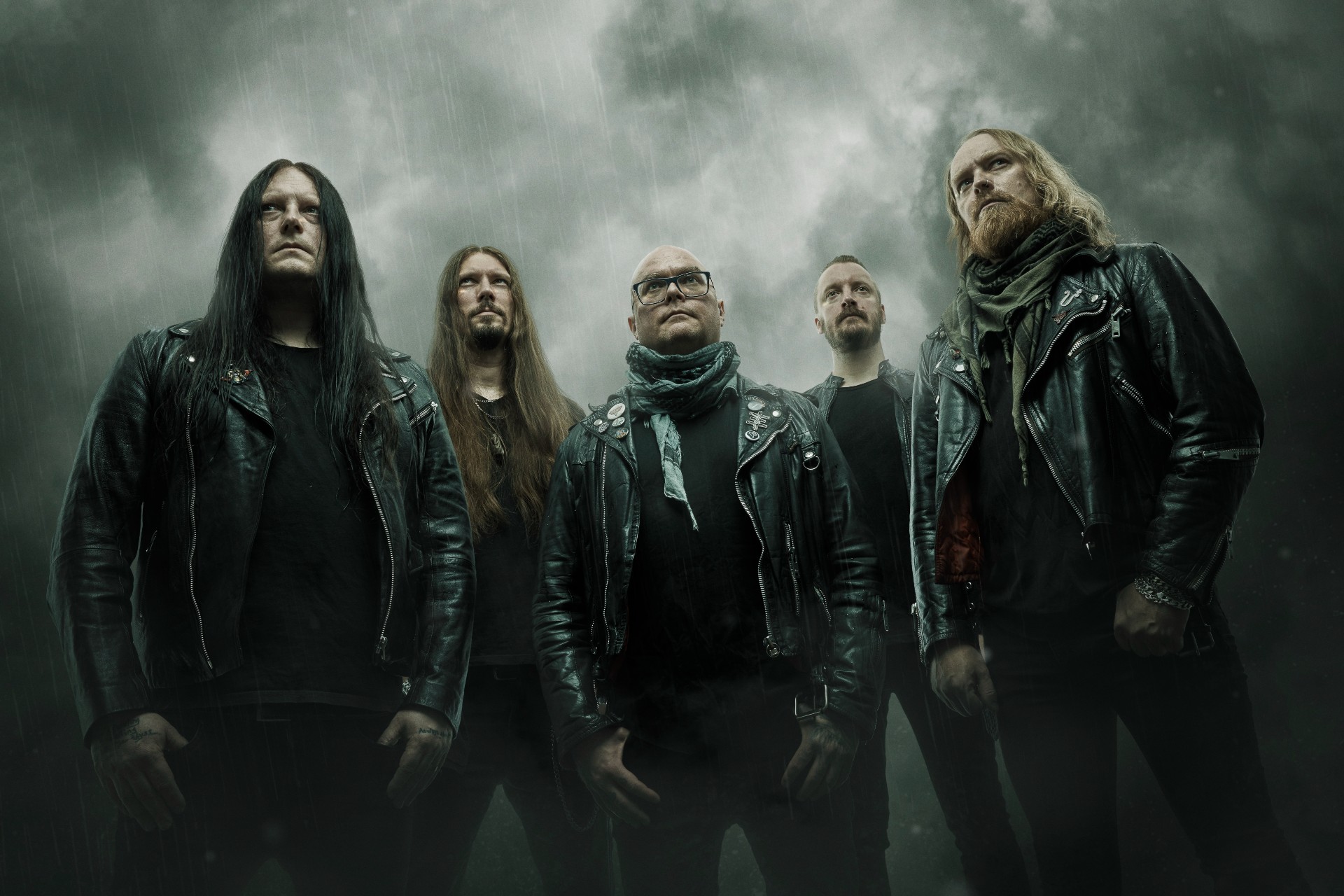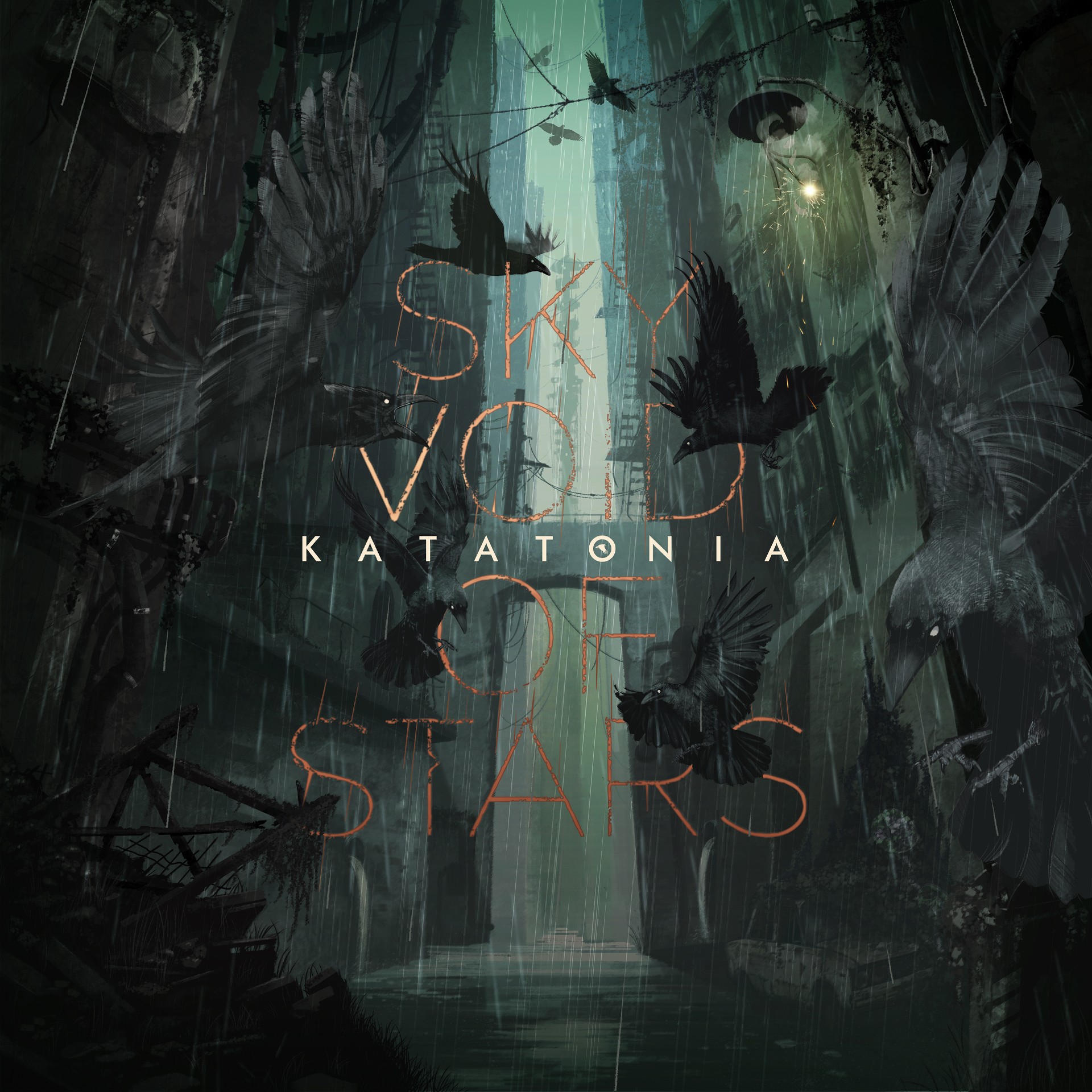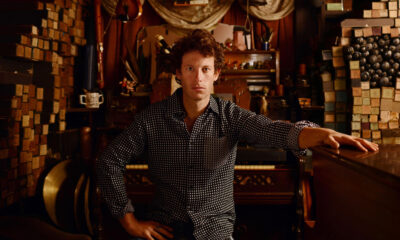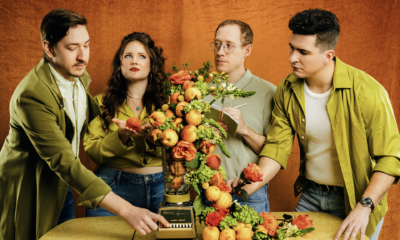Interviews
Katatonia Interivew: Guitarist Roger Öjersson on ‘Sky Void of Stars,’ Stage Fright, and Playing Live
Supporting their new album ‘Sky Void of Stars’ (Napalm Records), Katatonia guitarist Roger Öjersson discusses the record, gear, playing live, stage fright, and the music industry.

Instead of a re-release of your debut album, an even better way to celebrate your 30th anniversary is to release a new album of all-new music. That’s what Scandinavian heavy metal masters Katatonia are doing with the release of their twelfth studio recording Sky Void of Stars, formally released today via Napalm Records. The album is a feast of dark metal, soaring post-rock, and elaborate progressive metal, with the final product a set of tracks that are both a crushing and exhilarating experience.
Although their style of music has evolved along the way since their gothic-flavoured doom metal of the 1990s to the more post-metal sound that they feature today, the quintet has always stuck to their mission of being an outlet of deep emotion, complete with the Scandinavian despair with which they have always been identified. Founding members Jonas Renkse and Anders Nyström continue to reinvent the band and shift their musical focus while staying true to what made them so exciting, dating back to the early 1990s. It’s music from the soul, for the soul.
As Katatonia prepares to begin a lengthy European tour this evening in Tampere, Finland, we recently caught up with guitarist Roger Öjersson to discuss Sky Void of Stars, gear, playing live, stage fright, and the music industry.
Who are your biggest influences?
Roger Öjersson: “My grandfather Sven Pettersson, who was nothing short of a musical genius, is probably the one who has influenced me the most. Growing up, my grandparents on my mother’s side lived upstairs from me, and I spent a lot of time up with them as a kid. My grandfather was a multi-instrumentalist with the flute, and the violin as his main instruments and my grandmother played the mandolin and guitar. My musical journey started at a very early age with the mandolin but drifted over to the guitar once I was big enough to hold one. My mother also played guitar but had chosen the medium of dance as her form of expression, working as a choreographer and dance teacher.
“I started playing classical guitar on my mother’s and my grandmother’s old guitars as soon as I was able to in the municipal music school back home, where actually my aunt was a vocal coach and my uncle a piano and musical theory teacher too. Whenever I had questions about the homework I got from week to week, my grandfather would help me out explaining notation or sometimes bringing out one of his own instruments showing the melody and such. I don’t think anyone has influenced me as much musically as he did.
“I also had a brilliant guitar teacher called Erik Ludwigsson that taught me so much on both playing and interpreting music. My uncle also gave me music theory lessons that definitely gave a greater understanding of music. In short, I guess my own family has been my absolutely biggest inspiration and influence when it comes to music.”
What’s the best criticism you’ve ever received about your music or performance?
“The first thing that comes to mind is Lee Kerslake comparing me to Randy Rhoads after our first gig together. Randy Rhoads was a very important influence for me guitar-wise early on, and if would ever call anyone a guitar hero it would be him, so that really meant a lot.”
Tell us about Sky Void of Stars: what was your experience making it? What went on behind the scenes? Any notable moments that stand out?
“This was probably one of the smoothest recordings I’ve ever been involved in. Everybody came really well prepared to the studio, and it didn’t take many days until it was done. I guess that’s the most noteworthy thing I remember about the actual recordings, how incredibly smooth everything went. We did have a really good time working with Lawrence MacRory on the recording of the guitars and bass too, which was a very nice new acquaintance for me.”
What do you like most about playing music?
“I guess that not only can I express myself best in this medium, but to be able to convey emotions to other people is probably the main thing about any musical endeavour I’ve been involved in. I tend to view it as painting with sound.”
Do you use the same gear when recording as you do when playing live? If yes, what and why? If no, why not?
“No, live, I’ve gone all digital with a Boss GT-1000. Mainly because it’s so much smoother to have the switchability of that unit, and also, it sounds great. I do love my analog gear, and that’s what I still go for in the studio, but to me, it’s too much of a hassle using live with a band like Katatonia. The amount of turning knobs and dancing around on three or four pedals for every change in sound like I do on my analog rig just wouldn’t be possible live. It would mean too much time would pass between songs, too, having to set the right tempos on all the different pedals used.
“I did spend quite a bit of time setting up my analog rig that I’ve used on the albums to get my favourite sound out of each style of effect. I started with sketching out a pedalboard with cheap Chinese pedals just to see what I would feel that I need and then replacing them mostly with remakes of old favourites that was already around when I was a kid. Though I have to say, in a lot of cases, the difference in sound between the cheap Chinese copies and the originals was, at least to my ears, negligible. I even kept two of them on there because I could find anything sounding better.
“The pedals on that board are the Ibanez Weeping Demon, a Pigtronix Philosopher’s Tone, a Black Sheep Trelicopter, a Black Sheep Flanger, an MXR Phase 95, an Ibanez Chorus Mini, an Ibanez Tube Screamer Mini, an AMT M-Lead, an Ibanez Analog Delay, and an Anasounds Element driving a spring tank attached under the board. I did a rig run-through of my analog setup for Guitar World a couple of years ago; that should be easy to find on YouTube for those interested.
“What I’ve added since then is a separate board with all the MLC pedals, giving the possibilities to get any kind of overdrive, distortion, or fuzz imaginable. Also, the MLC SubZero 100 amp that just blew me away. It’s like having all of my favourite amps I’ve ever played tweaked to perfection in one single amp. Mark Laskowski, who designs and builds that stuff, is truly a genius.”
What’s the funniest thing that’s ever happened at one of your shows or on tour?
“Funny things happen all the time on every tour. Weirdly, it’s always the stuff that goes completely to shit that makes the funniest stories afterwards. Can’t really think of anything that would be appropriate for press right now.”
Do you ever get stage fright? What’s your solution for it?
“I get stage fright when I do a clinic and have to stand on my own talking in front of people. Music I know, but I am skilled in very little else. I actually feel most at home on stage when I just have to play and sing. I get more nervous standing in line at a store.”
What do you think of the current state of the genre you play in?
“I’m not sure what genre that would be. The music tends to pull you in different directions genre-wise, pretty much all the time. Whatever the song needs.”
What are some of the newer bands that you are listening to or enjoying?
“I rarely know when something was produced. Time and space are not for me. But some artists that I would consider newer and enjoy listening to are Hozier, Tyler the Creator, Radical Face, and Klotet, to name a few.”
If you could change anything about the music industry, what would it be?
“The industry part. The machine. I do realize the need for a lot of that stuff, but that doesn’t mean I have to like it. Also, another thing, we, as a band, are lucky to have the freedom of expression that we have kind of come to take for granted, but so many new artists don’t have that luxury. When the industry part starts to want to get involved in the creation part, I think we’re on a very destructive path.”
What has been the most memorable moment of your career so far?
“Oh, there have been so many. To single out any is almost impossible. One that will always stay with me, though, is the third gig with the first band I released albums with as a kid. The first two gigs were in regular rock clubs; then the record company thought it would be a good idea to put us as a support act for Status Quo for some reason, even though we were not even remotely alike musically, so that third gig was in front of 10,500 people at Scandinavium in Gothenburg, which was quite an experience. I remember when the singer went up to the microphone and breathed in to introduce us and paused when hearing that out through the huge PA, and the reverb of the place felt like it went on forever. I will never forget that sound.”
What’s the most dangerous thing that’s ever happened at one of your shows?
“When I was younger and still partying a lot around shows, weird shit happening felt kind of inevitable, but I guess I was very lucky, having barely avoided misfiring pyro or being electrocuted by faulty wiring or being hit by falling heavy stage gear because my only real battle scar is after a cracked eyebrow and concussion after missing the bed when going to have a lie-down and instead hitting a concrete floor with my face.”
-

 Music5 days ago
Music5 days agoTake That (w/ Olly Murs) Kick Off Four-Night Leeds Stint with Hit-Laden Spectacular [Photos]
-

 Alternative/Rock6 days ago
Alternative/Rock6 days agoThe V13 Fix #010 w/ High on Fire, NOFX, My Dying Bride and more
-

 Hardcore/Punk2 weeks ago
Hardcore/Punk2 weeks agoHastings Beat Punks Kid Kapichi Vent Their Frustrations at Leeds Beckett University [Photos]
-

 Alternative/Rock2 weeks ago
Alternative/Rock2 weeks agoA Rejuvenated Dream State are ‘Still Dreaming’ as They Bounce Into Manchester YES [Photos]
-

 Features5 days ago
Features5 days agoTour Diary: Gen & The Degenerates Party Their Way Across America
-

 Culture1 week ago
Culture1 week agoDan Carter & George Miller Chat Foodinati Live, Heavy Metal Charities and Pre-Gig Meals
-

 Music7 days ago
Music7 days agoReclusive Producer Stumbleine Premieres Beat-Driven New Single “Cinderhaze”
-

 Alternative/Rock1 week ago
Alternative/Rock1 week agoThree Lefts and a Right Premiere Their Guitar-Driven Single “Lovulator”














